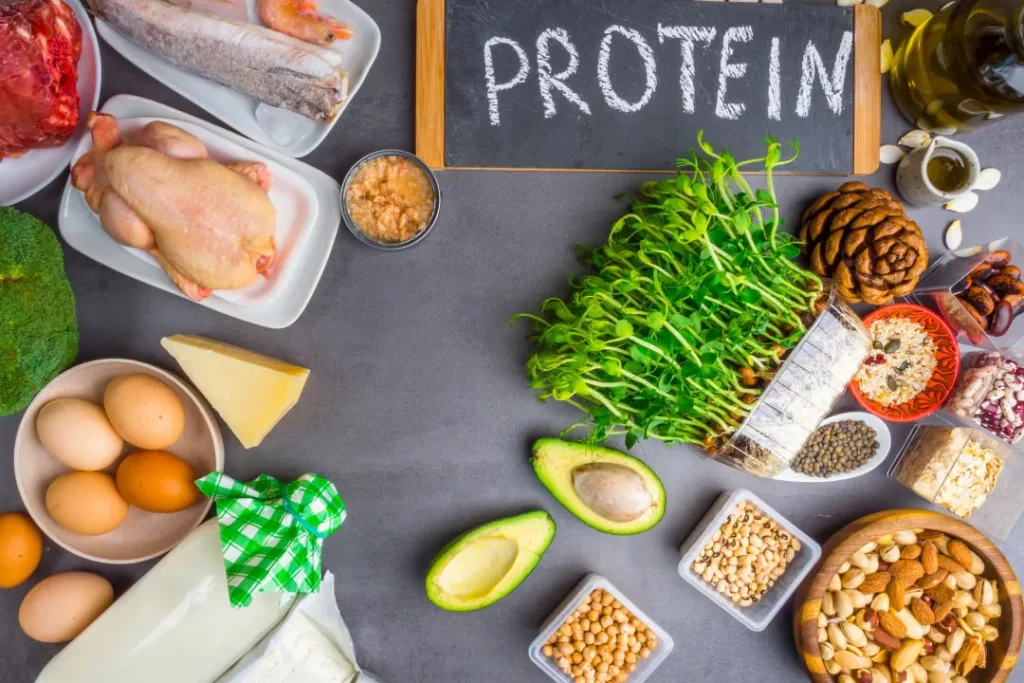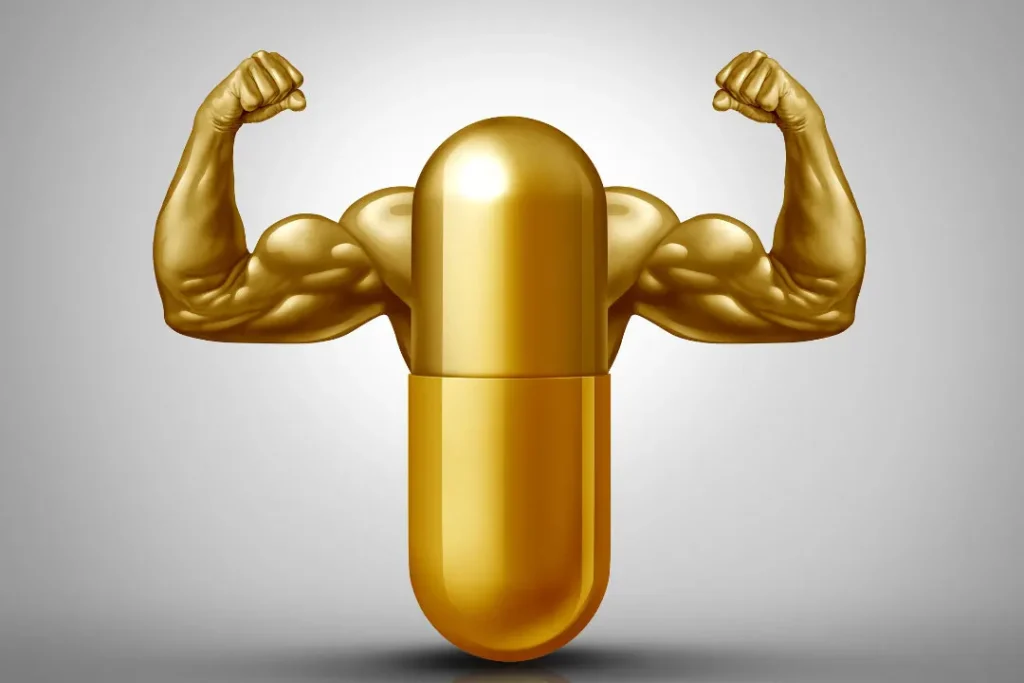Protein supplements come in a variety of forms, and they can provide a convenient way to support muscle growth and weight management; however, certain protein supplement products may be highly processed or contain added sugars and artificial ingredients, which could lead to digestive issues and other negative health effects. We’ll discuss the pros and cons of protein supplements to help you make a better-informed decision.
Protein supplementation has very much become the modish dietary fashion of the cognoscenti. While mention of “protein” may conjure up images of bodybuilders, the macronutrient’s popularity comes from its importance to overall health: protein is integral to reducing the risk of heart disease, carrying oxygen in the blood, and even helping heal injuries.
You May Also Like:
BREAKING THE CHRONIC PAIN CYCLE
GETTING MORE DAYLIGHT COULD MEAN BETTER SLEEP AT NIGHT
However, while protein supplements offer many great benefits, they also have potentially adverse side effects, including dehydration and digestive complications. To that end, it’s essential to consider both sides when adding extra protein to your diet. Keep reading to discover the pros and cons of protein supplements.
Pros and cons of protein supplements:
Convenient muscle growth and weight loss
Traditionally, people get protein from food sources like meat, poultry, eggs, or fish. Its “superfood” status has been consistent throughout history. Still, it wasn’t until the 1950s that the “first processed protein shake appeared on the market,” ushering in the modern-era interest in protein’s body-building prowess. Research in 2003 linking protein to weight loss only skyrocketed its celebrity and helped create today’s crowded protein supplement market. Indeed, the protein supplement market is estimated to exceed $32.56 billion by 2028.
Part of this appeal lies in their convenience, as they are quick and easy to use. More so, they offer all the versatility of protein in a melange that helps build muscle and reduce weight. For example, a supplement like whey protein, which is especially effective for weight loss, is considered a complete protein, meaning it contains all nine essential amino acids. You cannot create these endogenously, so supplementation is crucial here. Likewise, plant-based alternatives, like pea protein, contain notably large protein concentrations and are extremely useful for building muscle and keeping blood pressure and cholesterol low.

Pros and cons of protein supplements:
Running your immune system at peak performance
Protein supplementation also plays an integral part in augmenting your immune system. Protein is vital for the proper function of the immune system since it consists of amino acids that aid in the fight against harmful cells that invade the body by supporting the T-cell system. Research has shown increased protein levels (and, by association, increased amino acid levels) to “enhance cellular immune mechanisms.” Protein supplements, like powders, typically contain richly concentrated forms of essential amino acids and are thus very beneficial for those looking to target immune system improvement.

Pros and cons of protein supplements:
Highly processed and excessively artificial
Protein supplements are processed products by their very nature and are classified as “dietary supplements,” which means they do not require FDA approval for marketing. As a result, it can be challenging to gauge what exactly is in the protein supplement you are taking. For example, some protein supplements include bioengineered ingredients, which are not inherently harmful to users but are certainly not “clean” or “natural.” In addition, additives like sugar can increase the calorie level of a protein supplement and offset weight loss benefits or even muscle gains. They can even increase your weight; Harvard Med School warns that “some protein powders wind up turning a glass of milk into a drink with more than 1,200 calories.”

Pros and cons of protein supplements:
Digestive issues and other side effects
One of the biggest cons of protein supplements is dietary issues. For instance, milk-based whey protein supplements can cause substantial digestive problems for individuals who are lactose intolerant. There is also the concern of consuming too much protein. Supplementation can put you at increased risk of this, and the effects of doing so can range from intestinal distress to indigestion and nausea to kidney distress; to the latter point, it’s also believed that excess protein puts extra strain on your kidneys leading to a slew of complications. Finally, some nascent research has found that some protein supplements have concerning heavy metal and toxin levels.

Pros and cons of protein supplements:
Nuzest is the premier source of protein supplementation
Only one protein supplement offers the diverse benefits of protein with all-natural ingredients: Nuzest Clean Lean Protein. Its main ingredient is an isolate of the European Golden Pea and is part of the burgeoning plant-based alternative protein movement. As a pea protein product, Nuzest Clean Lean Protein comes from a natural source and avoids the digestive issues that plague other protein supplements. Plant-based proteins, in general, are leaner and lower in calories while still offering the same muscle growth and weight loss benefits of other protein supplements. A 2019 study concluded that plant-based alternatives and whey protein yielded similar outcomes in “body composition, muscle thickness, and force production.”
As a protein derived from the European Golden Pea, a split pea, Nuzest Clean Lean Protein is a good source of iron, which helps create the protein myoglobin that provides oxygen to your muscles. It also contains all-natural ingredients such as some of the Branched-Chain Amino Acids (BCAAs): Leucine and Isoleucine. The former may improve glucose homeostasis and help maintain blood sugar levels, while promising research indicates the latter is vital in regulating the immune system. Nuzest Clean Lean Protein thus offers a robust effect on the user that “encourages recovery, vitality, muscle repair, and growth.”

Pros and cons of protein supplements:
Let your protein come naturally
Whether you’re looking to tap into protein’s ability to build muscle, shed fat, or improve general health, it’s paramount that you consider the holistic effects of your protein supplement of choice. Protein is natural, and its benefits interact with different biological functions. Your supplementation should reflect this and help accentuate your body’s natural uses for protein. So if you want to add more protein to your diet, look for something high-quality, but more importantly, make sure it’s natural.
For further reading:
Medical News Today: What are the benefits of protein powder?
Forbes Health: A Guide To The Best Supplements For Muscle Growth
The Guardian: Giving peas a chance: why pea protein is leading the whey
Important Note: The information contained in this article is for general informational purposes only, and should not be construed as health or medical advice, nor is it intended to diagnose, prevent, treat, or cure any disease or health condition. Before embarking on any diet, fitness regimen, or program of nutritional supplementation, it is advisable to consult your healthcare professional in order to determine its safety and probable efficacy in terms of your individual state of health.
Regarding Nutritional Supplements Or Other Non-Prescription Health Products: If any nutritional supplements or other non-prescription health products are mentioned in the foregoing article, any claims or statements made about them have not been evaluated by the U.S. Food and Drug Administration, and such nutritional supplements or other health products are not intended to diagnose, treat, cure, or prevent any disease.


